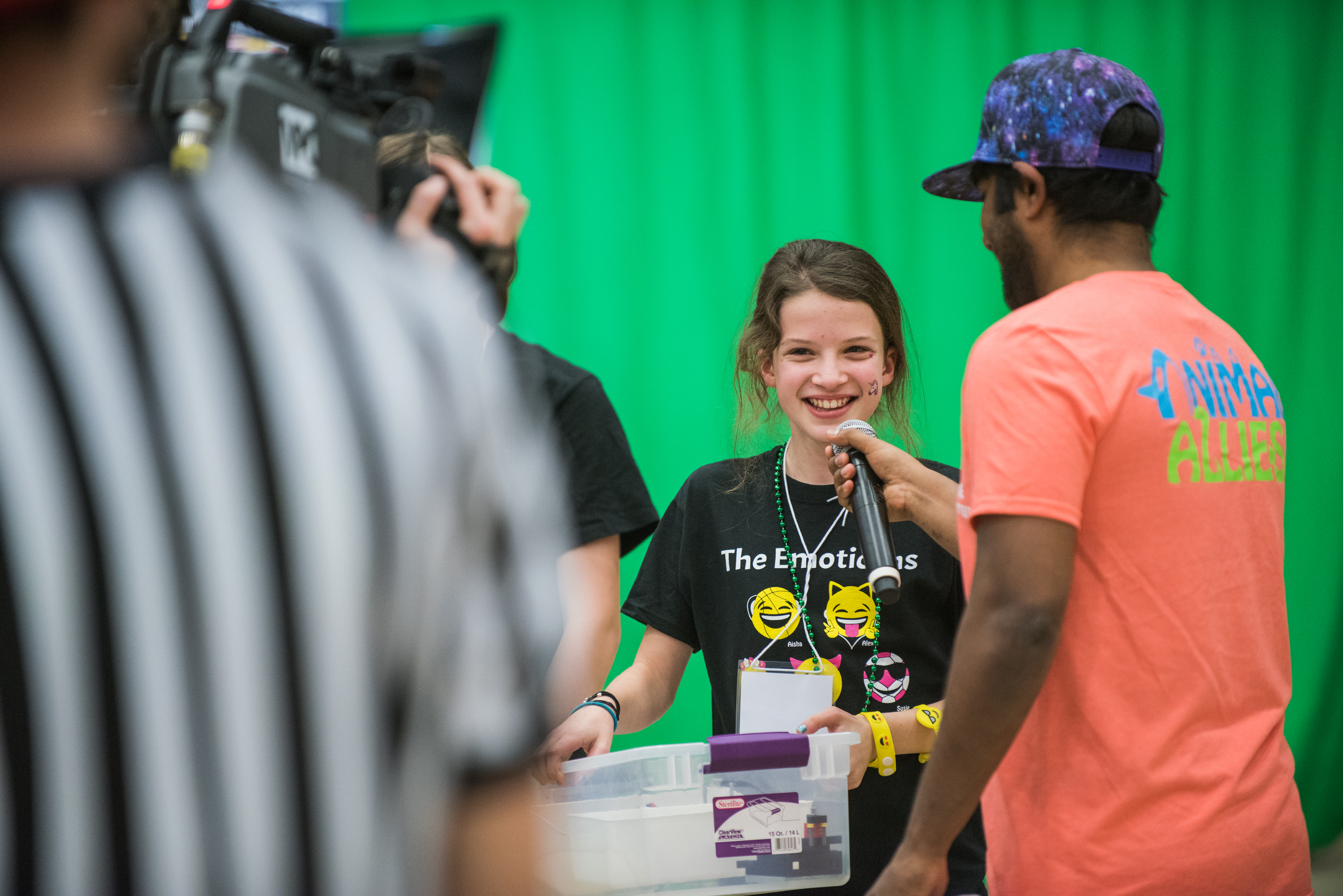Jennifer Sleeman, Ph.D ’17, computer science, loves programming. So, when she was asked to coach the Einstein Narwhals, her son’s FIRST LEGO League team, the visiting assistant professor was excited to be able to share her passion and spend more time with her 10-year-old all at once.
The team competed in the Maryland FIRST LEGO League competition, held at UMBC, in February, taking first place for Robot Strategies and Innovation. With that win, the team of eight elementary and middle schoolers participated in the FIRST LEGO League World Championship, held in Detroit in late April. Among 104 teams, they won the Judge’s Award trophy, and walked away with lots of new ideas.
LEGO Learning
“FIRST LEGO League inspires young children to work as scientists and engineers. It requires them to program a robot and complete missions that are built with Legos,” says Sleeman. “It also allows them to discover a real problem, research possible solutions, meet with experts in the field to understand the problem better, and to get feedback on their proposed solution and present their solution to others.”
There are three components of the competition: project, robot design, and core values. During the robot design portion of the event, the team must build the attachments and robot completely out of LEGOs, according to themed challenges.
At the beginning of the season, the team took some field trips to local businesses, including a fire station in Clarksville, MD, to choose a grassroots issue that they would work to address over the course of the season. The firefighters told the students that one challenge they face in the colder months is fire hoses freezing when the water is not flowing. To prevent the hoses from freezing, the firefighters resort to letting the water run, which poses dangers and is wasteful.
The Einstein Narwhals decided to come up with a way to prevent fire hoses from freezing by developing a hose heater that generates energy that can be used to keep the hoses warm enough. Sleeman’s son and his teammates developed a water wheel that stores energy generated by the wheels in a battery and uses it to heat the hoses. The team has applied for a provisional patent for one of the ideas that they developed during the season.

From the 2017 First LEGO League Competition at UMBC. Photos by Marlayna Demond ’11.
“The Team Loves Working Together”
Throughout the season, the team met once or twice each week for a couple of hours to work on their project. Students wind up helping out with every aspect of the project, from programming to engineering, so that they have a broad range of skills. “It’s great because the team loves working together,” says Sleeman, adding that it allows the students to have more time with their friends during the week.
For Sleeman, the most rewarding part about being a coach has been getting to mentor the students, particularly the girls on the team, because she says it’s important for the girls to have role models in STEM who are women.
Damian Doyle ‘99, computer science, senior director of enterprise infrastructure at UMBC, has been involved with FIRST LEGO League because his son Leo has been a participant for several years.
“I’ve watched him become invested in his team, engaging with teammates, and truly partnering to accomplish more than any of them could accomplish individually,” he explained, adding that his son loves working with his team on robots, and that he learns new things each year. “Leo found he really enjoys the programming aspect, developing that skill and sharing that knowledge has really helped to boost his confidence in himself, which is wonderful.”
— Megan Hanks